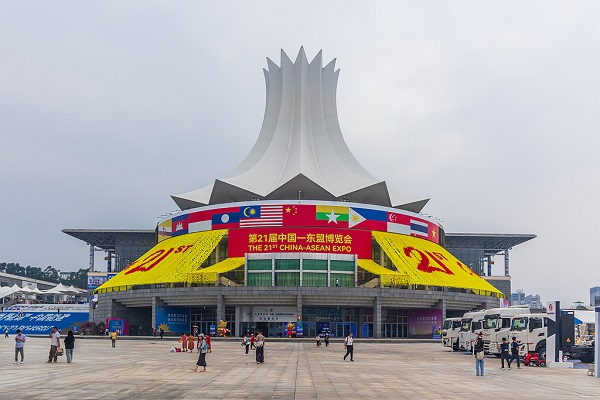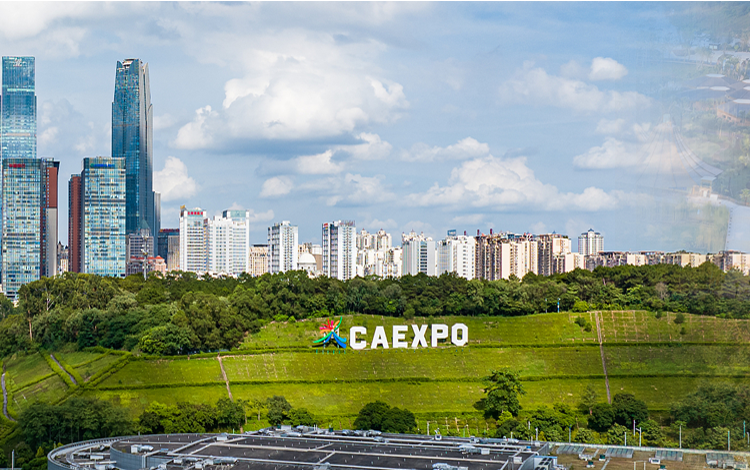$2.1b deals inked with Malaysia

A view of the venue for the 21st China-ASEAN Expo in Nanning, South China's Guangxi Zhuang autonomous region. [Photo/VCG]
Cooperation agreements worth a total of 14.6 billion yuan ($2.1 billion) were signed on Wednesday to facilitate a China-Malaysia industrial park project and commodity trading between China and the Association of Southeast Asian Nations.
The deals were inked during a trade promotion conference on the sidelines of the 21st China-ASEAN Expo in Nanning, Guangxi Zhuang autonomous region.
Focusing on the China-Malaysia projects, bulk commodity trading and supply chain finance, the meeting promoted collaboration on 15 industrial projects, 15 bulk commodity trading projects and six financial innovation projects.
Among the projects, the "Two Countries, Twin Parks" project is a major cooperative result achieved with the Belt and Road Initiative. As part of the project, the China-Malaysia Qinzhou Industrial Park (CMQIP) in Guangxi was launched in 2012, and its sister park — the Malaysia-China Kuantan Industrial Park (MCKIP) in Kuantan, Malaysia's Pahang state — was set up in 2013.
The conference saw participation of more than 300 delegations from economic and trade authorities, business associations, research institutions, bulk commodity trading platforms and representatives from over 240 companies in China and ASEAN member states.
"The industrial park (MCKIP) is not only an economic cooperation project, but also an important engine that changes the economic landscape of Kuantan and Pahang state," said Sim Chong Siang, an executive council member of Pahang.
The building of the MCKIP has made Kuantan a vital trade hub, while attracting international investors and creating high-quality job opportunities for the local community, Sim said.
Noting that this year marks the 50th anniversary of the establishment of China-Malaysia diplomatic relations — and the Year of China-Malaysia Friendship — Tan Pichuang, vice-chairman of Guangxi, said the region is willing to work with all partners concerning the twin parks to jointly promote infrastructure connectivity and cooperation in industry, investment, trade and finance.
Tan said he looks forward to jointly developing the twin parks into an example of economic and trade innovation, as well as a demonstration zone for high-quality BRI cooperation on industrial capacity.
Noting that Malaysia and China celebrated the 10th anniversary of the establishment of a comprehensive strategic partnership last year, Tan Tian Meng, secretary-general of the Associated Chinese Chambers of Commerce and Industry of Malaysia, said the bilateral relationship is at its best point in history.
Tan said the twin parks of Malaysia and China have injected new vitality into the economic development of both countries, and he wishes to see more exchanges in the business sector to explore more opportunities in each other's markets.














